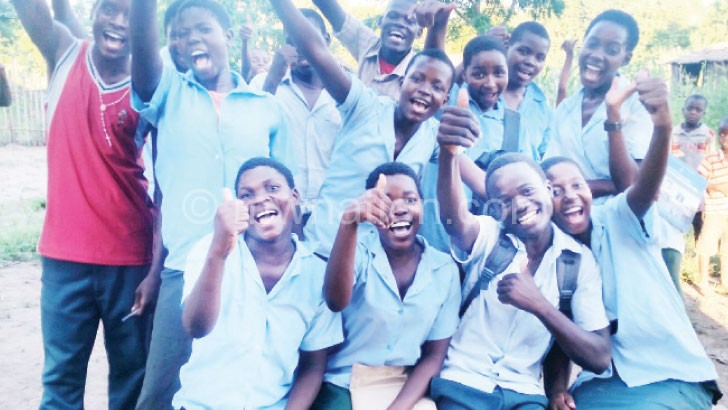Girls for sciences
Eighteen-year-old Esther Malata of Ingazi Village in Traditional Authority (T/A) Lundu, Chikwawa aims high.
The path to fulfilling her dreams is riddled with numerous challenges such as poverty and forced marriages.
Esther says she and many other adolescent girls also face stereotyping, especially the view that science subjects are more for boys than girls.
“Science can be tackled and accomplished by girls just like their male counterparts. But due to such stereotyping, girls are demotivated.

“Many of us choose to shun sciences because of the orchestrated negativity. We should not be compared with boys, but treated as equal,” she said.
On forced marriages, the teen said such acts give a bad impression and worsen their school situation that girls are born to marry, not work hard in education to become independent and useful citizens one day.
She said unless parents cultivate a culture of investing in their daughters, they will not understand the importance of educating girls.
“I want to become a nurse someday and I know what I have to overcome to achieve this. But for others, this might not be the case. They might be swallowed up by pressures and stereotypes,” said the Form Four student at Chifunda Community Day Secondary School (CDSS) in Chikwawa.
Group village head Fote-wani agreed that poverty is the main trigger of early sexual experiences which expose adolescent girls to unplanned pregnancies, forced marriages and HIV prevalence.
“When a girl reaches puberty, she is regarded as mature for marriage because cultural practice encourages that. Most parents are won over by bride prices to force their daughters into marriages,” said the traditional leader.
She said a bale of sugar or a wrapper (chitenje) is enough to sway some parents to give away their daughters to old men for marriage.
Science subjects are important to both boys and girls in school because they present similar opportunities in future.
It is against this background that the Malawi-Liverpool-Wellcome Trust embarked on a project called Samala Moyo to promote science-related careers among adolescents, especially girls.
Regina Makwinja is a monitoring and evaluation coordinator at Malawi-Liverpool-Wellcome Trust. She said one of the critical components of the project is to establish health clubs in schools.
Recently, the Samala Moyo club of Chifunda CDSS held its first community health exhibition focusing on malaria.
Secretary of the club, Prince Kafakeza, said the youths undergo training on understanding science subjects and health issues to educate communities.



